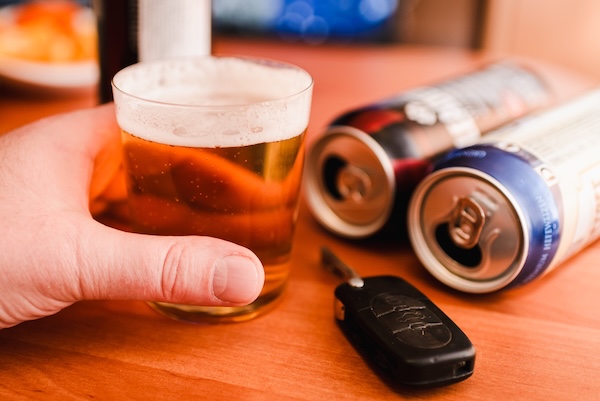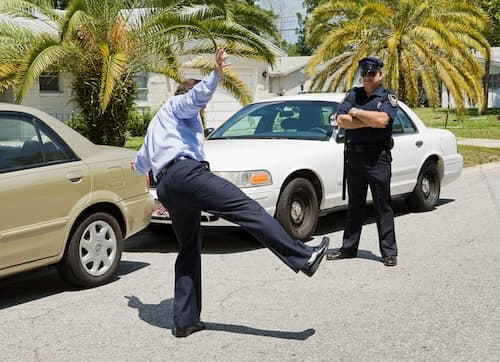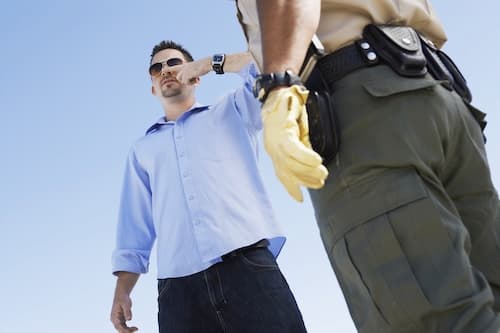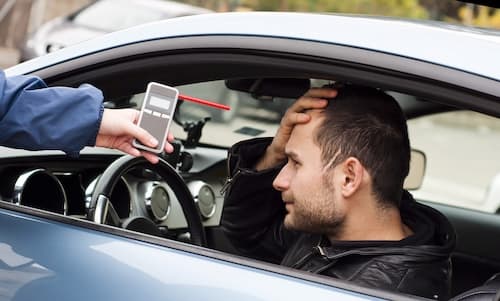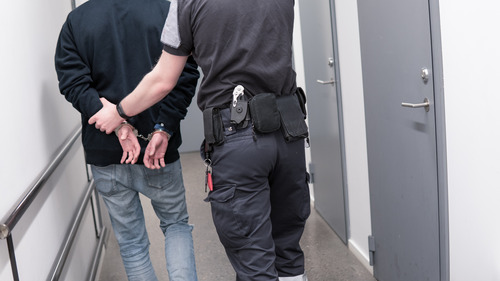Why Field Sobriety Test Accuracy Matters
When people in Asheville are pulled over on suspicion of impaired driving, the first tool most law enforcement officers rely on is the field sobriety test. These roadside evaluations are designed to help police determine impairment, but the accuracy of field sobriety test Asheville results is far from perfect.
In fact, scientific studies, including the well-known San Diego study by the National Highway Traffic Safety Administration (NHTSA), show that even trained officers using standardized tests can make mistakes that potentially influence a driver’s future.
At Asheville DUI Guy, we know that challenging field sobriety test accuracy is often the first line of defense in DUI cases. This blog unpacks the science behind these tests, the role of officer training, the limitations of the three test battery, and how a skilled DUI defense lawyer can protect your rights in Buncombe County courts.
The Science Behind Field Sobriety Tests
Field sobriety tests (SFSTs) were developed to give law enforcement agencies a standardized manner of identifying drivers who may be impaired. The three tests most often used are:
- Horizontal Gaze Nystagmus Test (HGN test)
- Walk and Turn Test (WAT test)
- One Leg Stand Test (OLS test)
Together, these three tests form the SFST battery. According to the San Diego study, these standardized field sobriety tests can predict a blood alcohol concentration (BAC level) above the legal limit with a reasonable accuracy rate.
However, the same study suggests several important caveats:
- Sample size was relatively small, meaning test results may not reflect broader populations.
- False positives occur, particularly those with low BACs who are incorrectly identified as impaired drivers.
- Environmental factors, medical conditions, and even officer bias can distort test results.
As a practical matter, DUI enforcement in Asheville depends heavily on how an arresting officer interprets these test results. That’s why understanding the statistical analysis behind SFST results is essential in DUI cases.
The Three Standardized Tests in Detail
Horizontal Gaze Nystagmus Test (HGN Test)
The HGN test measures involuntary jerking of the eyes (horizontal gaze nystagmus) as they follow a moving stimulus. Trained officers look for six clues of impairment:
- Lack of smooth pursuit
- Distinct nystagmus at maximum deviation
- Onset of jerking before 45 degrees
While the HGN test is touted as one of the most reliable field tests, medical conditions such as inner ear problems, neurological disorders, or even fatigue can cause involuntary jerking unrelated to alcohol.
If the officer administering the test does not follow standardized procedures, the accuracy rate plummets. Defense attorneys often question whether the police officer correctly followed the National Highway Traffic Safety Administration guidelines.
Walk and Turn Test (WAT Test)
The walk and turn test requires a suspect to take nine heel-to-toe steps along a straight line, turn, and return in the same manner. Officers observe for clues such as:
- Failing to maintain balance
- Incorrect number of steps
- Inability to follow instructions
But real life isn’t always standardized. Uneven Asheville pavement, flashing police lights, or nervousness can all influence performance. Studies show that even sober study participants often stumble during this test, making false positives more common than law enforcement agencies admit.
When an arresting officer testifies in court, DUI defense attorneys highlight these practical matter realities to undermine the reliability of the WAT test.
One Leg Stand Test (OLS Test / Leg Stand)
The OLS test requires a suspect to stand on one leg for 30 seconds while counting aloud. Law enforcement officers look for swaying, using arms for balance, or putting the foot down.
But the test results are easily skewed by:
- Age or weight of the driver
- Medical conditions or leg injuries
- Surface conditions such as gravel or wet asphalt
In Asheville DUI cases, an attorney will carefully examine whether the officer’s decision was based on genuine impaired driving or factors unrelated to alcohol. Even trained officers can misinterpret balance issues as signs of intoxication.
Factors That Can Influence Test Accuracy
The accuracy of field sobriety tests depends on much more than the suspect’s blood alcohol content. Several outside factors can distort the SFST battery results, including:
- Environmental conditions: Asheville’s mountain weather, uneven pavement, or poor lighting can all affect balance and coordination.
- Officer error: The officer administering the test may fail to give proper instructions or deviate from a standardized manner.
- Medical conditions: Inner ear issues, neurological disorders, or fatigue can mimic the clues law enforcement officers are trained to identify.
- Psychological pressure: Nervousness when confronted by police can cause mistakes in coordination tests.
Because these tests are inherently subjective, DUI enforcement in Buncombe County often hinges on the credibility of the officer’s decision.
Field Sobriety Tests vs. Chemical Tests
While field tests are subjective, chemical tests provide a quantifiable measure of blood alcohol content (BAC level). Law enforcement agencies use two main chemical tests:
- Breath test: Portable devices measure alcohol concentration in breath samples.
- Blood test: Provides the most accurate measure of blood alcohol concentrations.
Even so, chemical tests have their limitations. Breath tests can yield false positives due to medical conditions, improper calibration, or residual mouth alcohol. Blood tests require proper handling and lab analysis.
As a practical matter, law enforcement officers often use SFST results to establish probable cause for administering a chemical test. If the sobriety test results are flawed, then the probable cause for a breath test or blood draw is also suspect.
Challenging Field Sobriety Test Accuracy in Asheville DUI Cases
At Asheville DUI Guy, we know that test results are not foolproof. Many DUI cases are built on the assumption that field sobriety tests accurately determine impairment. But experienced defense attorneys highlight:
- False positives: Particularly those with low BACs who fail the SFST battery.
- Improper administration: The officer administering did not follow the standardized manner outlined by NHTSA.
- Environmental conditions: Weather, terrain, and lighting can undermine accuracy rate.
- Medical conditions: Defendants with legitimate balance or vision problems may fail field tests unfairly.
- Officer bias: The arresting officer may interpret ambiguous results as signs of impairment.
By questioning the officer’s decision, examining SFST results, and comparing them with chemical test outcomes, defense attorneys weaken the prosecution’s case.
Legal Insights & Defense Tips for Asheville NC
In Asheville and throughout North Carolina, DUI enforcement is aggressive. Law enforcement agencies train officers to use the SFST battery as a gateway to DUI arrests. But that doesn’t mean the tests are infallible.
Here are key defense strategies:
- Challenge probable cause: If field tests were the only basis for arrest, their accuracy can be attacked.
- Scrutinize the officer’s training: Was the police officer properly certified in administering SFSTs?
- Highlight environmental factors: Document poor conditions that may have impacted test results.
- Compare with chemical test results: If BAC level is below the legal limit, field test failures may be false positives.
- Introduce expert testimony: Statistical analysis of the San Diego study and other research can demonstrate that SFST battery results are less reliable than prosecutors claim.
DUI cases often hinge on the jury’s perception of whether the defendant was truly impaired. By dismantling the credibility of field sobriety tests, the defense creates reasonable doubt.
Frequently Asked Questions About Challenging Field Sobriety Tests in Asheville DUI Cases
Can I refuse a field sobriety test in North Carolina without being arrested?
In North Carolina, drivers are not legally required to submit to field sobriety tests. While law enforcement officers may pressure you to perform the one leg stand test, the walk and turn test, or the horizontal gaze nystagmus test, refusal does not carry the same license suspension penalties as refusing a chemical test. However, the arresting officer may still decide to charge you with impaired driving based on other observations. The important point is that field sobriety test accuracy is not guaranteed, and refusing them can limit the amount of subjective evidence used against you in court.
How accurate are standardized field sobriety tests in determining impairment?
The National Highway Traffic Safety Administration and the San Diego study suggest that the three test battery—the HGN test, WAT test, and OLS test—can identify impaired drivers with an accuracy rate of around 65–77%. However, that means up to one-third of test results can be false positives, particularly those involving drivers with low BACs or medical conditions. Field sobriety test accuracy is compromised when officers fail to administer tests in a standardized manner, when conditions such as uneven pavement or flashing police lights are present, or when nervous study participants stumble even without alcohol.
Can medical conditions affect the accuracy of field sobriety test results?
Yes. Conditions like vertigo, balance disorders, neurological problems, or even anxiety can mimic the clues that law enforcement agencies are trained to spot. For example, involuntary jerking of the eyes during the horizontal gaze nystagmus test can occur due to medical issues unrelated to alcohol. Likewise, back injuries or age-related mobility limitations can cause difficulties during the one leg stand or walk and turn test. These factors highlight why field sobriety test accuracy should always be challenged in DUI cases, since officer’s decisions may not account for these legitimate impairments.
What is the difference between a chemical test and a field sobriety test in DUI cases?
A chemical test—such as a breath test or blood test—provides a direct measurement of blood alcohol content. Field sobriety tests, on the other hand, are subjective evaluations conducted by police officers in the field. The SFST battery is designed to determine impairment, but studies show their accuracy rate is far from perfect. As a practical matter, the results of a chemical test often carry more weight in court than field test results. Still, both can be challenged if the arresting officer failed to follow proper procedures or relied on flawed probable cause.
How can a DUI lawyer in Asheville challenge field sobriety test accuracy in court?
A skilled defense attorney can challenge SFST results by questioning whether the officer administering the tests followed standardized procedures, highlighting environmental factors that may have influenced performance, and using statistical analysis from the San Diego study to show the limitations of the SFST battery. They can also argue that the officer’s decision was based on subjective observations rather than scientific certainty. By casting doubt on field sobriety test accuracy, your lawyer creates reasonable doubt about whether you were truly impaired at the time of your arrest.
Are field sobriety tests admissible in Asheville DUI court cases?
Yes, but their reliability can be challenged. Courts in North Carolina allow law enforcement officers to testify about standardized field sobriety tests, but the weight given to this evidence depends on how well the officer followed training guidelines and whether the results align with chemical test outcomes. Because false positives and low BACs are common, defense attorneys often argue that field sobriety test accuracy is too unreliable to serve as the foundation for a DUI conviction.
Fight Back Against Questionable Field Sobriety Test Accuracy in Asheville
Don’t let the results of a walk and turn test, one leg stand test, or horizontal gaze nystagmus test decide your future. Even trained officers and law enforcement agencies admit that standardized field sobriety tests are not perfect.
If you’ve been charged with DUI in Asheville, you need a defense attorney who knows how to challenge SFST results, chemical tests, and the arresting officer’s decision.
👉 Call Asheville DUI Guy today 828-759-5556 for a free consultation and protect your rights against unreliable field sobriety test evidence.
